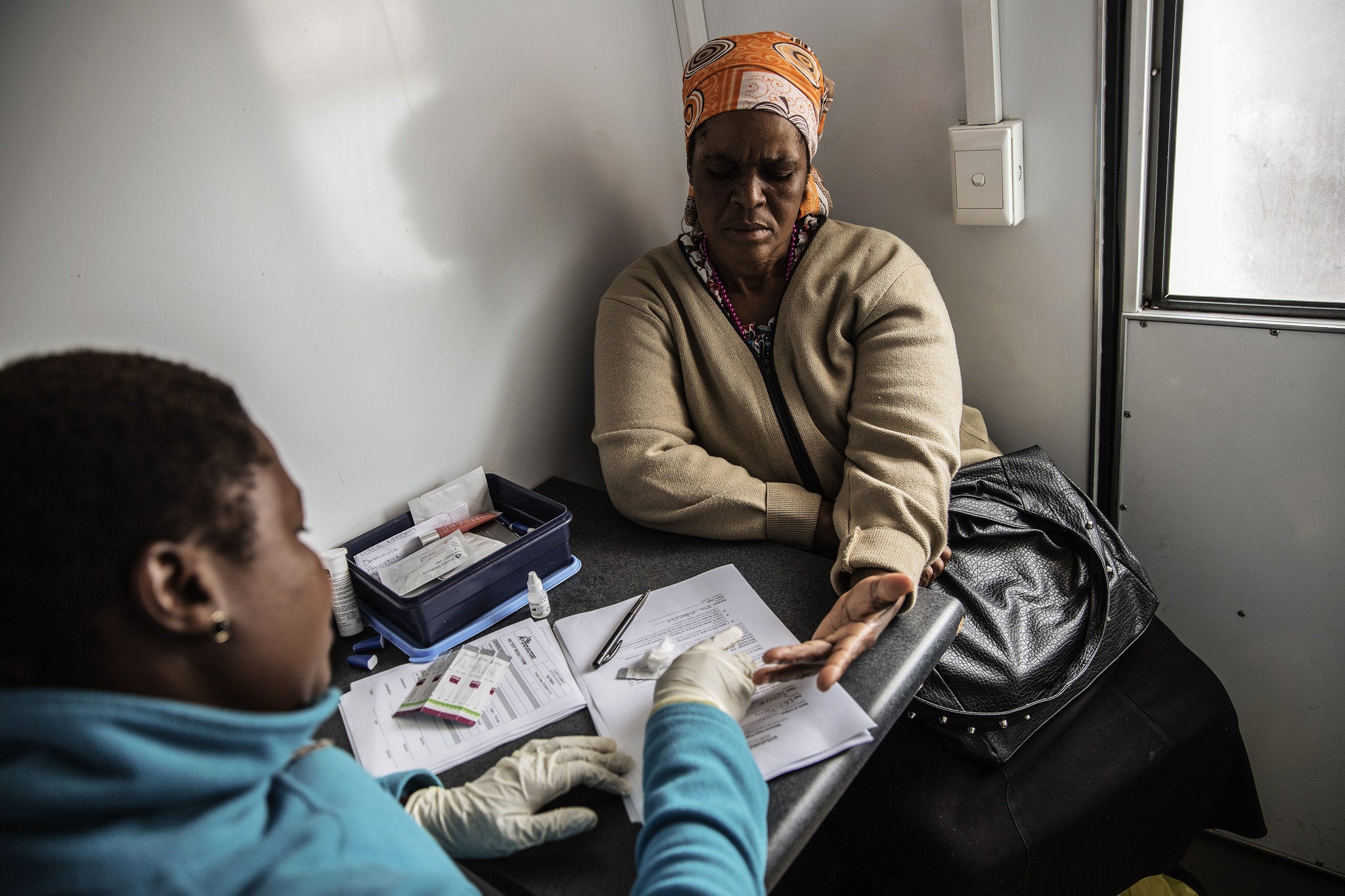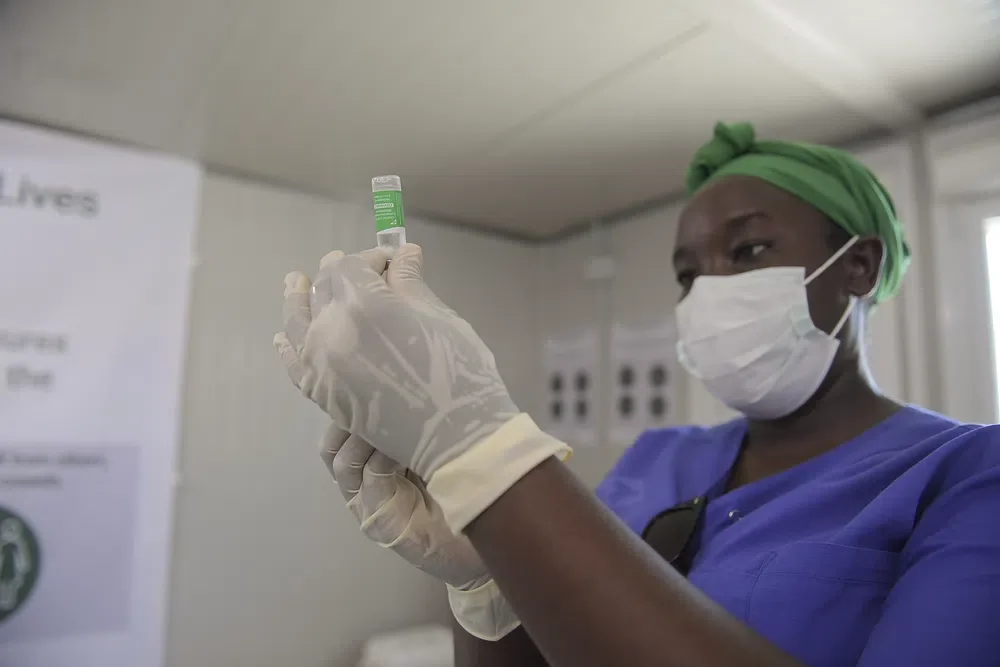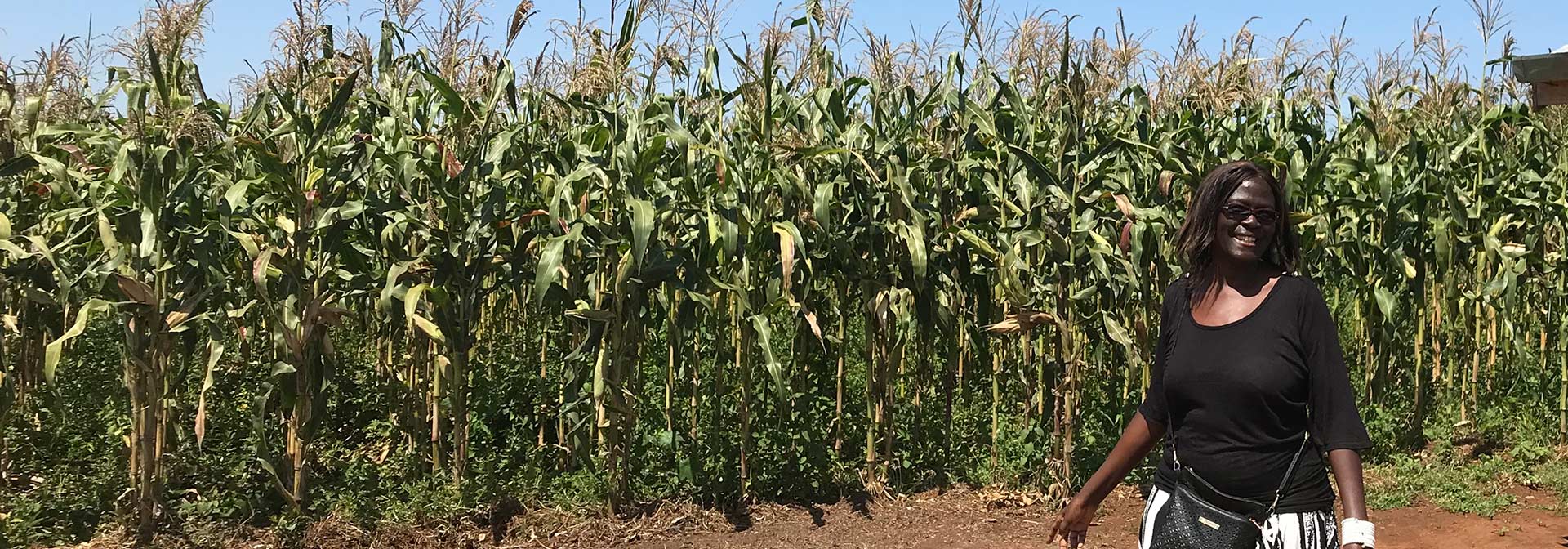Topic / Behavioral Science
Projects
 A Type 1 Hybrid Effectiveness-Implementation Evaluation of a City-Level Transitional Housing Program's Effects on Health, Economic, and Psychologic Outcomes Among People with HIVPhiladelphia, PA
A Type 1 Hybrid Effectiveness-Implementation Evaluation of a City-Level Transitional Housing Program's Effects on Health, Economic, and Psychologic Outcomes Among People with HIVPhiladelphia, PA The effects of government-led cash transfer programs on health outcomes among women and young children in low- and middle-income countries
The effects of government-led cash transfer programs on health outcomes among women and young children in low- and middle-income countries IBIS: Transformative approaches to rapidly and efficiently test demand creation interventions to promote HIV retesting in adults at increased risk of HIVKenya and Uganda
IBIS: Transformative approaches to rapidly and efficiently test demand creation interventions to promote HIV retesting in adults at increased risk of HIVKenya and Uganda PROTECT: Inoculating and boosting against HIV vaccine misinformation among adolescent girls and young women in South AfricaJohannesburg, South Africa
PROTECT: Inoculating and boosting against HIV vaccine misinformation among adolescent girls and young women in South AfricaJohannesburg, South Africa Evaluating B-OK bottles to improve evidence-based HIV medication adherence counselingPhiladelphia, PA
Evaluating B-OK bottles to improve evidence-based HIV medication adherence counselingPhiladelphia, PA Improving HIV testing, linkage, and retention in care for men through U=U messaging in South AfricaEast London and Cape Town, South Africa
Improving HIV testing, linkage, and retention in care for men through U=U messaging in South AfricaEast London and Cape Town, South Africa Improving participation in vector-borne disease control campaigns in PeruArequipa, Peru
Improving participation in vector-borne disease control campaigns in PeruArequipa, Peru Akiba: A savings intervention to reduce men’s engagement in HIV risk behaviorsKisumu, Kenya
Akiba: A savings intervention to reduce men’s engagement in HIV risk behaviorsKisumu, Kenya Undetectable = Untransmittable (U = U) Messaging Increases Uptake of HIV Testing Among Men: Results from a Pilot Cluster Randomized TrialCape Town, South Africa
Undetectable = Untransmittable (U = U) Messaging Increases Uptake of HIV Testing Among Men: Results from a Pilot Cluster Randomized TrialCape Town, South Africa Secondary Distribution of HIV Self-tests: an Innovative Strategy for Promoting Partner Testing and Reducing HIV RiskKisumu, Kenya
Secondary Distribution of HIV Self-tests: an Innovative Strategy for Promoting Partner Testing and Reducing HIV RiskKisumu, Kenya Indlela: Behavioural Insights for Better HealthJohannesburg, South Africa
Indlela: Behavioural Insights for Better HealthJohannesburg, South Africa
Featured Publications
- B-OK: a visual and tactile tool for improving HIV mental models in a United States urban centerAIDS Care (2025)
- Mental Bandwidth is Associated with HIV and Viral Suppression Among Low-Income Women in PhiladelphiaAIDS and Behavior (2024)
- Mobile delivery of COVID-19 vaccines improved uptake in rural Sierra LeoneNature (2024)
- Ending Supplemental Nutrition Assistance Program Emergency Allotments and Food InsufficiencyJAMA Health Forum (2023)
- Maximising the value of nudge units for global healthThe Lancet Global Health (2023)
- We must invest in behavioural economics for the HIV responseNature Human Behaviour (2023)
- A Randomized Trial of Price Subsidies for Liquefied Petroleum Cooking Gas among Low-income Households in Rural IndiaWorld Development Perspectives (2023)
- A savings intervention to reduce men’s engagement in HIV risk behaviors: study protocol for a randomized controlled trialTrials (2022)
- A quasi-experimental cohort study evaluating a conditional economic incentive on first-dose COVID-19 vaccination rates among older adults in South AfricaBMJ Global Health (2022)
- Planning and commitment prompts to encourage reporting of HIV self-test results: A cluster randomized pragmatic trial in Tshwane District, South AfricaPLOS Global Public Health (2022)
- Incentives to promote accessing HIV care and viral suppression among HIV self-screening test users who obtain a reactive resultFrontiers in Reproductive Health (2022)
- Using Behavioral Economics to Support PrEP Adherence for HIV PreventionCurrent HIV/AIDS Reports (2022)
- Testing a social network approach to promote HIV self-testing and linkage to care among fishermen at Lake Victoria: study protocol for the Owete cluster randomized controlled trialTrials (2022)
- Behavioural science to improve effectiveness of HIV programmes, South AfricaBulletin of the WHO (2021)
- Do Incentives Crowd Out Motivation? A Feasibility Study of a Community Vector-Control Campaign in PeruBehavioral Medicine (2021)
- Participatory Prototyping of a Tailored Undetectable Equals Untransmittable Message to Increase HIV Testing Among Men in Western Cape, South AfricaAIDS Patient Care and STDs (2021)
- Systematic review of clinician-directed nudges in healthcare contextsBMJ Open (2021)
- Transforming Mental Health Care Delivery Through Implementation Science and Behavioral EconomicsJAMA Psychiatry (2021)
- Undetectable = Untransmittable (U = U) Messaging Increases Uptake of HIV Testing Among Men: Results from a Pilot Cluster Randomized TrialAIDS and Behavior (2021)
- Behavioral Insights Into Micronutrient Powder Use for Childhood Anemia in Arequipa, PeruGlobal Health: Science and Practice (2020)
- A behavioral design approach to improving a Chagas disease vector control campaign in PeruBMC Public Health (2019)
- A qualitative study of secondary distribution of HIV self-test kits by female sex workers in KenyaPLOS ONE (2017)
News
- Alison Buttenheim, Harsha Thirumurthy, and two colleagues from Wits University in South Africa published a commentary in The Lancet Global Health - Maximising the value of nudge units for global health. The commentary reflects on the work of the Indlela nudge unit in South Africa over the past three years. It also addresses the need for nudge units and behavioral scientists engaged in global health research to invest in strengthening local capacity.The Lancet Global Health · Harsha Thirumurthy · Alison Buttenheim
- BEGIN Lab Co-Director Alison Buttenheim co-authors the Indlela NUDGE Handbook, a practical guide to applying behavioral insights to challenges in HIV service deliveryIndela · Alison Buttenheim
